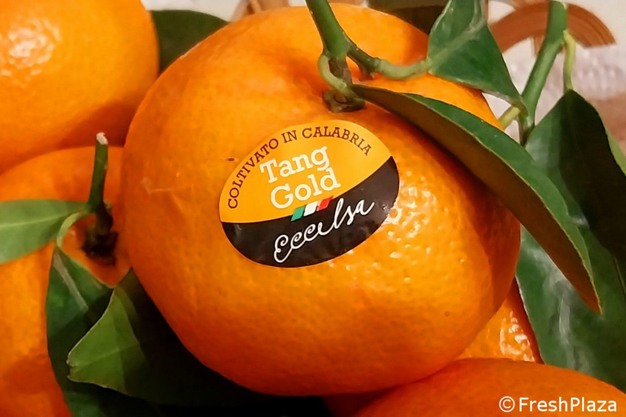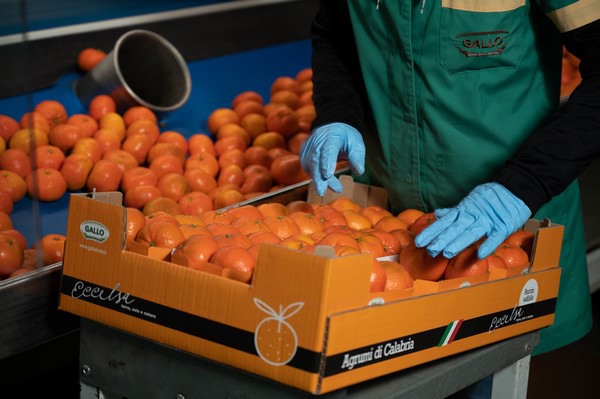Now that the season for the Common clementine and the later Hernandina variety has come to an end, it's time for the seedless Tang Gold mandarin. The campaign ended a few days ago, ahead of schedule, according to Natalino Gallo, president of the Agricor producer organization in Corigliano-Rossano (CS), which owns the Gallo trademark.
"Our Eccelsa-branded Tang Gold mandarin campaign ended on 28 February 2024 with good yields, albeit at least a week earlier than planned," says Gallo. "As with the Common and Hernandina clementines, the effects of the weather, while resulting in excellent quality, also resulted in poorer yields. Drought, or lack of rainfall, and higher than average temperatures have been the leitmotif of this citrus season."
The hectares of Tang Gold planted in the Sibari plain for next year's crop are divided into three areas, each corresponding to a different production system: organic, residue-free and controlled supply chain. "In all three cases, our Tang Gold mandarins are of excellent quality, with a unique and genuine flavor and a 100 per cent edible peel," Gallo explains.

The key is in respecting nature's cycle
"To preserve the delicate balance of the local ecosystem, we use the most innovative and eco-friendly techniques. We select only what the land has to offer in each season, with respect for its natural cycles," says Gallo. "The production of high-quality products is a process that takes time. That's why we do what nature dictates, not the market. We don't force our plants. True success is not about profits, but in the realization of a system of shared values in which the respect for nature is closely linked to the respect for people."
However, climate change is bringing with it major challenges, according to the president of Op Agricor, because it's becoming more and more difficult to make plans. "We've seen a 20 per cent drop in total citrus production, but the higher temperatures have favored the quality of our fruit. There was no temperature fluctuation, and especially in the early stage of the campaign, the citrus did not reach the right color and size. The weather was still hot and humid in mid-October, with temperatures close to 30 degrees Celsius, which favored the development of plant diseases. This, combined with increased irrigation, drove up production costs."
"The heat and the inflation crisis caused some concern at the beginning of the season, but fortunately everything went well in terms of quality and sales, both in Italy and abroad. Consumers have responded positively, and this rewards us for all the hard work we've done to offer healthy products of the highest quality," Gallo continues.

Eco-friendly packaging
"We have been using less plastic packaging and more cardboard. This is an ethical and sustainable choice that adds value to our fresh produce. To package the fruit grown by our farmers, we have opted for eco-friendly packaging that is recycled and recyclable, such as the 100% cardboard baskets that come with each package," emphasizes the president of Op Agricor.
"In addition, the flexible plastic R-PET cover wrap has been replaced with a woven fabric for organic produce. The completely green packaging makes it possible to combine sustainable ingredients with a sustainable container. Each package tells a story rich in tradition and, thanks to the use of a special QR code, it is possible to obtain additional information about the product," Gallo concludes.
For more information: www.gallofrutta.net/it
